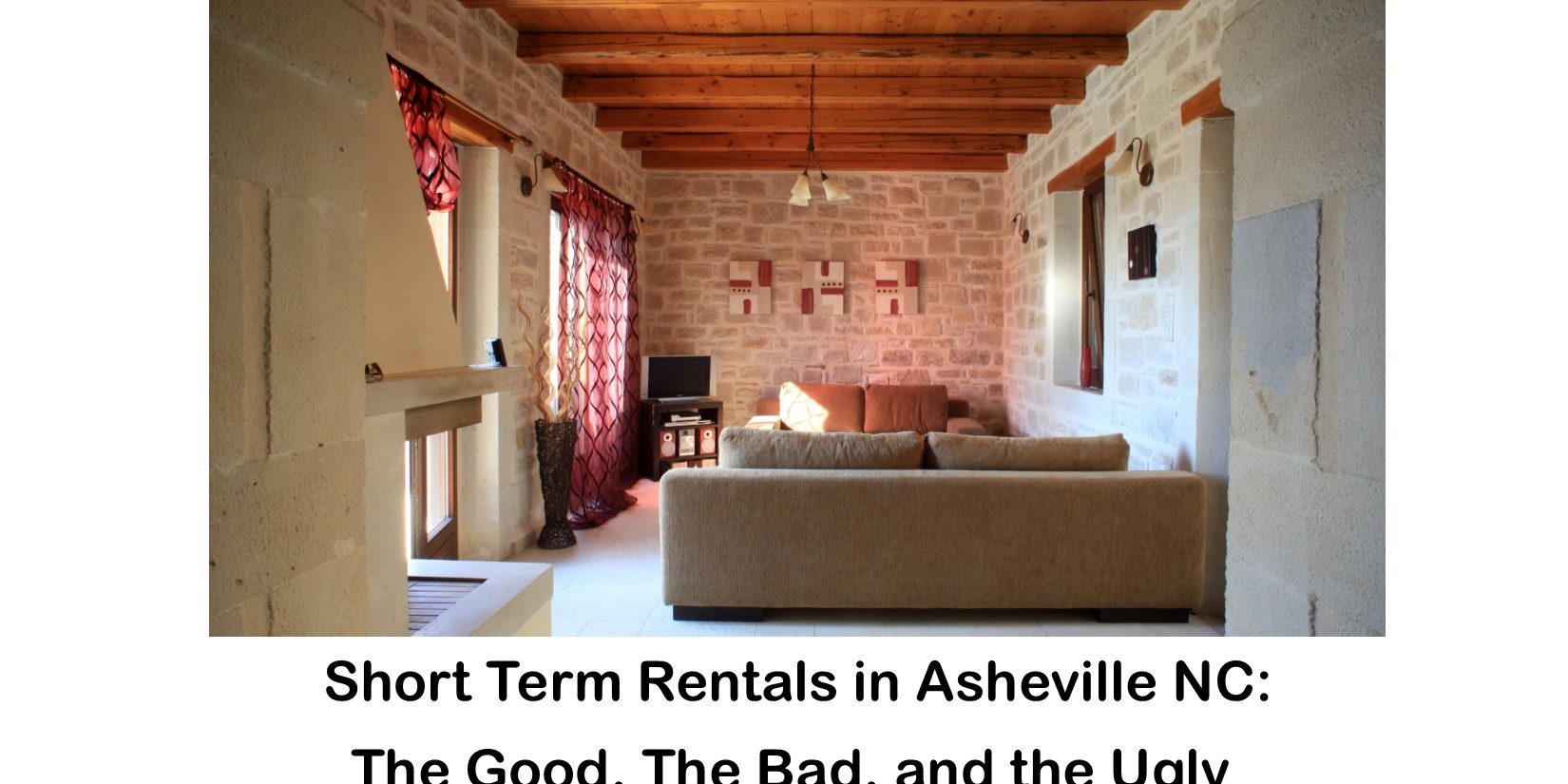Short term rentals, such as AirBnB are becoming ubiquitous across the country. And the effects are certainly being seen in Asheville, both good and bad. But what do you need to know about short term rentals, how they impact a community, how legal they are in Asheville, and whether or not you want to become involved in the market? We want to take a closer look at all aspects of this issue so you can make an informed decision for yourself.
The Current Rules for Short Term Rentals in Asheville
Within the city limits of Asheville, homeowners are allowed to rent out a portion of a home or accessory dwelling unit, attached or unattached, if they follow the guidelines.
These regulations were established about this time last year and established what is and is not allowed in the city. The regulation defines short-term rentals space as “a dwelling unit with up to six guest rooms that is used and/or advertised through an online platform, or other media, for transient occupancy for a period of less than one month.” In this case, an entire home cannot be used for short term rental purposes anywhere within the city unless they fall within the limited “resort districts.”
What is legal in Asheville are homestays. A homeowner can rent a portion of their home or an attached or unattached accessory dwelling unit. To qualify, the homeowner must be present while the guest is staying in their home and the guest space cannot have a kitchen.
You can apply for a permit to allow for a homestay here.
Buying a Home For Short Term Rentals
So, what if you want to buy a home to use as a short-term rental property? The first step is to determine if you want to have guests stay in your home sharing your space. If so, you can buy a home with an en suite area that might be suitable for guests to have their own bedroom and bathroom access. You may also wish to buy a home with a separate entry that allows your guests to come and go.
It becomes a little more complicated if you want to have a completely separate space for guests. Accessory dwelling units are a popular choice. This may be a finished basement with bathroom and separate access, a secondary apartment, or an unattached accessory dwelling unit.
One of the major concerns we see when working with individuals buying homes including accessory dwelling units to rent is insurance. While homeowner’s insurance will cover the primary dwelling, and landlord insurance will apply to long-term rentals of your secondary unit or apartment, the waters muddy quickly when short term rentals become involved.
We’ll be honest. We have not found a perfect solution to this short term rentals problem but we continue to work with our homebuyers to make the situation work.
Renting Out a Portion of Your Home
If you do choose to rent out a portion of your home using a service like AirBnB or VRBO, there are some things you want to know.
Using AirBnB as an example, since it is the most commonly used vacation rental site on the market today, we wanted to provide some pointers.
- Apply for a permit. Before you do anything, ensure that your property is permitted to rent as a homestay.
- Communicate with neighbors. It’s also a good idea to let your neighbors know that you’re doing this. Answer questions, let them know you’ll still be there, and be able to respond to concerns when they come up.
- Communicate with guests. Communicate with guests starting with their booking and throughout their stay. Know most of them will be good guests, but if problems arise you can address them quickly if you’re willing to communicate.
- Draw boundaries. It’s also important to draw boundaries. If a guest does cross your boundary, you absolutely can ask them to leave. But be consistent with this.
- Create a minimum stay. If you want to avoid having new people in and out every day, consider making a requirement for minimum stay.
- Use the tool. AirBnB is a system that makes this process easier, so use the tool to help manage your rental.
- Make the stay special. There are also small things you can do to make the stay special. Some hosts are sure to leave a coffee and tea station. You can leave local wine or beer or, for guests who may not want alcohol, a box of local chocolates. And leave a manual that includes a list of local restaurants or other entertainment venues you personally recommend.
Community Impact of AirBnB
Of course, short term rentals aren’t always perfect and they can negatively impact a community as well. In Asheville, they signal a change in the neighborhoods. They impact the community in three primary ways:
- Lack of housing inventory. There’s an impact on the housing market when people buy homes to use as short-term rentals. This is why the city changed the regulations to permit homestays but not whole house rentals in an attempt to prevent investors from buying up all of the viable inventory.
- Impact on parking and traffic. With homestays, how do the hosts manage parking for their guests? Street parking throughout the Asheville area is already limited, so how does this impact the neighbors directly?
- Unknown people in the homes. When people rent homes in the Asheville area, how can the hosts ensure that they won’t have parties or disrupt the neighborhood? AirBnB has a review policy that allows for users and hosts to be rated, which can help. This is also where good communication can benefit everyone.
There’s a lot to process when it comes to short term rentals in the city of Asheville NC. Do you have questions or want to share your thoughts? Please let us know.







